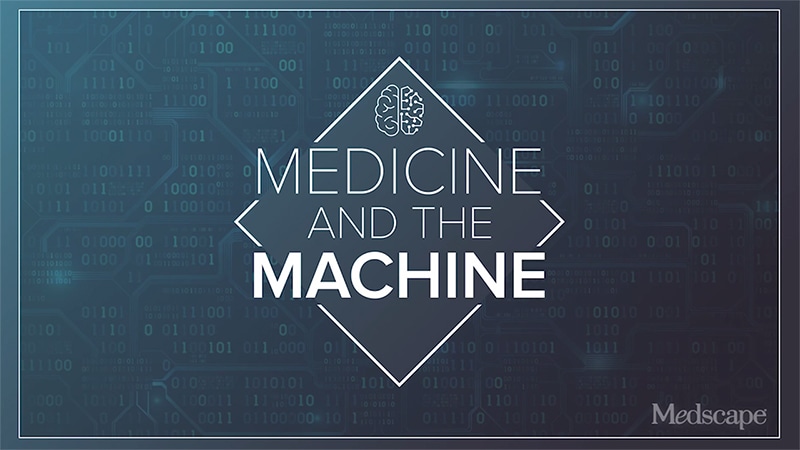Wisdom From a Scottish GP: The Lost Art of Convalescence Explored in Conversation
Core Concepts
The importance of convalescence in modern healthcare and the impact of the human-human bond on patient recovery.
Abstract
Introduction to the podcast featuring Dr. Gavin Francis, a Scottish GP and author.
Dr. Francis discusses the inspiration behind his book "Recovery: The Lost Art of Convalescence."
The significance of convalescence in patient recovery and mental health post-COVID.
Dr. Francis emphasizes the role of primary care physicians in guiding patients through recovery.
The therapeutic relationship between doctors and patients and the impact on recovery.
The concept of travel or pilgrimage as a form of recovery and spiritual renewal.
Challenges faced by the NHS in accessing secondary care and the impact on patient care.
Dr. Francis's perspective on balancing his medical career with writing and managing burnout.
The importance of connecting with the joy of medicine to prevent burnout.
Wisdom From a Scottish GP: The Lost Art of Convalescence
Stats
"The majority of patients, as soon as they can walk back and forth to the toilet and dress themselves, are discharged from hospital."
"It's a journey that can take many months with all kinds of conditions, and general practitioners are much more closely involved in this."
"The word doctor comes from a root meaning 'guide,' and I often feel that I am a guide for my patients through these stormy waters and challenging landscapes of recovery."
Quotes
"I realized that I was having the same conversations, again and again, about principles of convalescence that I take for granted but that many of my patients did not."
"The very best doctors modify and adjust their consulting style according to the kinds of patients they encounter."
"Most people work too much. Most people work too hard. Wouldn't it be better to drop the intensity of work?"
Key Insights Distilled From
by Eric J. Topo... at www.medscape.com 11-28-2023
https://www.medscape.com/viewarticle/998614
Deeper Inquiries
How can the concept of convalescence be integrated into modern healthcare practices to improve patient outcomes?
Incorporating the concept of convalescence into modern healthcare practices can significantly enhance patient outcomes by focusing on the holistic recovery of individuals. Convalescence involves the period of gradual recovery after an illness or medical treatment, emphasizing rest, recuperation, and rehabilitation. Healthcare providers can integrate convalescence by promoting personalized care plans that address not only the physical aspects of recovery but also the mental, emotional, and social well-being of patients. This approach involves recognizing the individual needs of patients during the recovery process and providing support tailored to their specific circumstances.
Furthermore, healthcare professionals can encourage activities such as travel, pilgrimage, or engaging in hobbies that promote spiritual and emotional healing. By acknowledging the importance of these non-traditional forms of therapy, patients can experience a more comprehensive and effective recovery journey. Additionally, fostering strong doctor-patient relationships based on empathy, communication, and shared decision-making can create a supportive environment conducive to convalescence.
How can healthcare systems balance the focus on technological advancements with the need for adequate funding to address day-to-day medical challenges?
Balancing the focus on technological advancements with the need for adequate funding to address day-to-day medical challenges is crucial for the sustainability and effectiveness of healthcare systems. While technological innovations such as artificial intelligence, genomics, and digital health solutions offer promising opportunities to enhance patient care, it is essential to ensure that these advancements do not overshadow the fundamental aspects of healthcare delivery.
Healthcare systems can achieve this balance by prioritizing investments in technology that directly contribute to improving patient outcomes, streamlining processes, and enhancing efficiency. Simultaneously, allocating sufficient resources to address day-to-day medical challenges, such as reducing waiting times for secondary care, enhancing primary care services, and supporting healthcare workforce development, is essential.
Moreover, healthcare systems can explore public-private partnerships, research collaborations, and innovative funding models to leverage technological advancements while addressing immediate healthcare needs. By adopting a strategic and balanced approach to technology integration and resource allocation, healthcare systems can optimize patient care delivery, enhance operational efficiency, and ensure long-term sustainability.
What are the potential implications of long waiting times for secondary care on patient health and well-being?
Long waiting times for secondary care can have significant implications on patient health and well-being, leading to delayed diagnosis, treatment, and potential worsening of medical conditions. Patients awaiting specialist consultations or procedures may experience increased anxiety, stress, and uncertainty about their health status, impacting their overall quality of life.
Furthermore, prolonged waiting times can result in disease progression, complications, and reduced treatment effectiveness, particularly for conditions that require timely intervention. Patients may also face challenges in managing symptoms, coping with the emotional burden of prolonged uncertainty, and maintaining their well-being while waiting for care.
From a healthcare system perspective, long waiting times can strain resources, increase healthcare costs, and contribute to inefficiencies in care delivery. Addressing these challenges requires proactive measures to reduce wait times, improve access to specialist care, and enhance care coordination to ensure timely and effective treatment for patients.
Overall, addressing long waiting times for secondary care is essential to safeguard patient health, well-being, and satisfaction with the healthcare system, emphasizing the importance of timely access to quality care for optimal outcomes.
0
